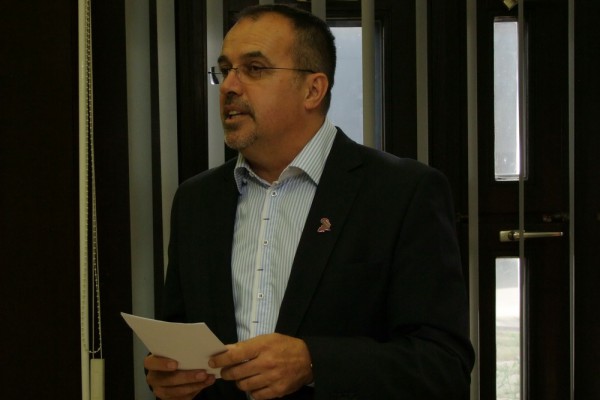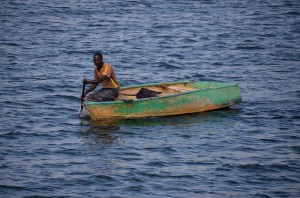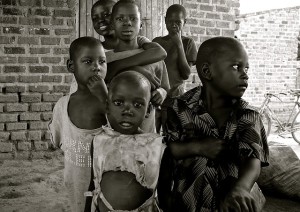Sandor Balogh: Africa’s problems need to be resolved in Africa
Featured News // 2016.03.07

The African-Hungarian Union (AHU) has issued a communiqué last week on the occasion of the World Refugee Day. The organization has expressed its concerns about illegal immigration and stated that they are constantly following the drama in the Mediterranean Sea and in the Balkans with great anxiety. They condemned discrimination based on people’s skin colour, origin, or religion, but emphasized that immigration, especially illegal immigration, cannot be a solution. The problems of Africa need to be resolved in Africa with European help, writes AHU in the communiqué.
The AHU is an international non-governmental development organization (NGDO), as such has been organized development projects for marginalized social groups in ten countries of Africa so far: Angola, Democratic Republic of Congo, Ethiopia, Guinea, Kenya, Madagascar, Mali, Mauritania, Morocco, and Uganda. The members of the organization believe that what happens in Africa, in today’s globalized world, has a direct effect on our lives, thus problems in Africa must be our concern as well. Alfahir.hu conducted an interview with Sandor Balogh, the co-president of AHU, who explained his views about the issue:
As you write in your communiqué, you condemn discrimination, and insist that those Europeans whose predecessors were immigrants should be allowed to live their lives safely on our continent, and we should encourage them to contribute to the prosperity of our nations. Do you think that these people have a good reason to live in fear in Europe?
Sandor Balogh: The current crisis, as crises in general, has negative impact on everybody involved. The situation isn’t pleasant either for those who have decided to step on the bumpy road of immigration, or for those who experience that the massive wave of immigrants subverts their everyday lives. As for the crisis itself, it can fuel all kinds of extremist thoughts or conceptions which discriminate people based on their religion, ethnicity, or origin, and it might incite people to violence as well. The culture of violence and exclusion may take various forms from the fanatics of the Islamic State through the Charleston shooting to the extremist Buddhist monks who drove Rohingya people out of their homes. Europe has become particularly vulnerable due to the financial crisis and the massive wave of immigrants, and we strongly reject all form of this violence and exclusion.
What is your opinion about the government’s planned resolution? Do you support it? What do you think about the proposal of Jobbik which promotes the setting up of a border police?
Sandor Balogh: The African-Hungarian Union is an independent civil organization, therefore it does not wish to comment on the Hungarian internal politics. Consequently, we have not formed and will not form any corporative opinion in such cases. Nevertheless, we clearly believe that any action near the territory or at the direct borders of the European Union could only function as damage control. The solution should emerge far away from the borders of Europe. The prime objective should be to create such conditions in Africa that would encourage people to stay where they originally belong.
Where illegal immigration may lead to in your opinion? How many people may take the road towards Europe over the next years according to your estimates?
Sandor Balogh: Our aim is not to scare the public, nor is it to understate the question. We rather wish to demonstrate how complex the problem we are facing, therefore we do not make such estimates, and we do not believe that it is reasonable to quantify the problem. The current crisis was generated by several factors: two stable and reliable states of the Middle East and North Africa, namely Syria and Libya collapsed, along with the worsening security situation in West Africa.
Europe became vulnerable and uncertain after the global economic crisis. In addition, such long term risk factors like climate change and migration caused by drought has contributed to the above mentioned factors. We can forecast neither political, nor economic, nor environmental processes and changes accurately – we can only tell which changes could increase and which changes could reduce migration pressure. The stabilization of the situation both in Syria and in Libya, and the establishment of strong central governments in these countries could considerably reduce immigration. On the contrary, any further destabilization of a bigger country in the Middle East would exponentially increase the number of asylum seekers. A serious draught or famine in Africa or in the Middle East may force local people to leave their homes. However, achieving good yield throughout many years could prevent agricultural households from leaving their lands. In this rapidly changing international situation, it is almost impossible to provide a more accurate prognosis.
Many times well-to-do people cross the European and the Hungarian border illegally as well. What could be their reason for taking the road?
Sandor Balogh: War hits everyone. It even affects people with well-established financial existence. These people have to make very difficult decisions: they leave their homes, businesses, and enterprises behind, because the country or city they had previously lived in became dangerous. Often, they eat up the last assets of their families in order to make sure they end up living in a more secure territory.
According to your communiqué, Africa’s problems need to be resolved in Africa with European help if necessary. How do you think it could be carried out?
Sandor Balogh: Currently, seven of the ten most dynamically developing countries are located in the Sub-Saharan Africa. The ultimate objective is to extend this economic growth to the other parts of the continent as well, in order to elevate more and more people from poverty. Our starting point is that people generally do not want to leave the land where they were born, where their parents lived, and where their relatives belong. If they believe that they can make their ways in life, they will rather stay where they originally belong, moreover, if they feel that their homeland has the potential to develop again, they will be willing to return. 
This has been proved in many countries. Hundreds of millions have defeated extreme poverty in Asia and in Latin America in the last decade. Immigration processes have slowed down, stopped, or even reversed in several countries there. If we help Africa provide quality education and appropriate healthcare for the young generation, and create new jobs, we indirectly reduce immigration pressure in Europe. Each and every Forint, Dollar, Euro, or Yuan we spend meaningfully in Africa reduces costs in border surveillance. It is not aid that these countries need, but rather such support that contribute to the rapid development of the local economies, and to the emergence of the African middle-class. The players of the world economy need Africa, as this continent is the last intact market of the globe. Where stabilization attempts will be successful in the medium term, within a decade or two, the direction of immigration could be reversed, which has already happened in the cases of Angola and Portugal.
/Source: alfahir.hu/
Share: